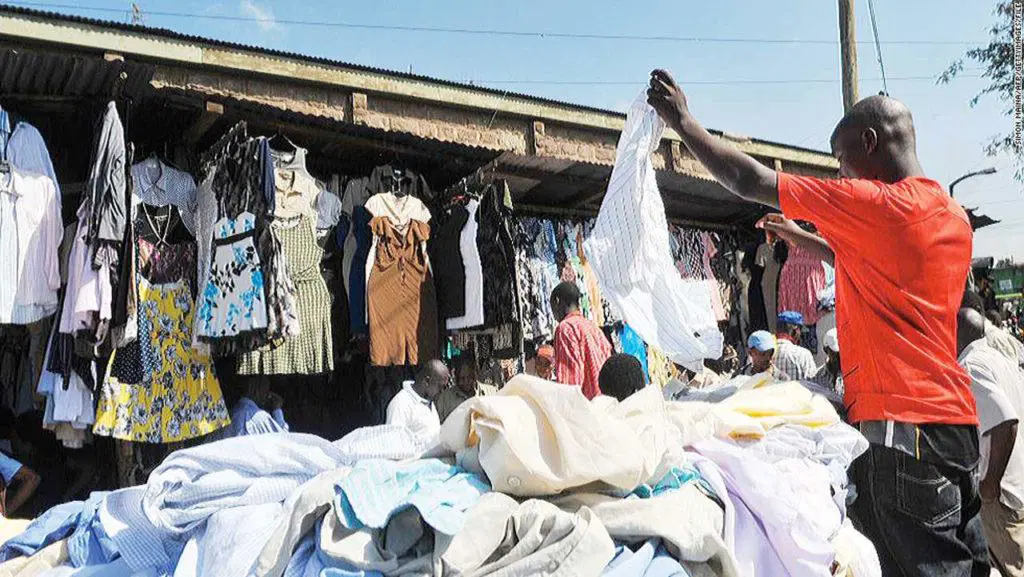Kenya has been named the largest importer of second-hand clothes in Africa, a title that highlights the country’s ongoing struggle to revive its textile industry while serving as a dumping ground for used garments.
Recent trade data from the Massachusetts Institute of Technology (MIT) shows that in 2023, Kenya imported second-hand clothes and textiles worth Sh38.5 billion ($298 million), surpassing Nigeria, which ranked fourth. The country has now become the leading buyer of mitumba, the Kiswahili term for second-hand clothing.
This marks a 12.45 per cent increase from the previous year, when imports stood at Sh34.28 billion ($265 million). The steady rise in shipments of second-hand garments continues to meet the increasing demand for affordable clothing in Kenya.
Ghana followed Kenya as the second-largest importer, with imports valued at Sh30.4 billion, while South Africa ranked third at Sh29.4 billion. Uganda and Nigeria completed the top five, importing Sh27.2 billion and Sh27 billion worth of second-hand clothes, respectively.
Kenyan traders have been importing various categories of second-hand clothes, including underwear, dresses, shirts, trousers, jackets, and shoes. Additionally, used textiles like bedding, towels, curtains, fabric scraps, and industrial rags have also found their way into the country.
Tobias Alando, the Chief Executive Officer of the Kenya Association of Manufacturers, stated that Kenya has not been proactive in growing its textile sector, which has contributed to the nation’s heavy reliance on imports.
In 2022, Kenya’s imports of second-hand clothes and textiles were nearly the same as Nigeria’s, at Sh34.5 billion ($265 million), with South Africa following closely at Sh33.76 billion ($261 million). South Africa had previously been the leading importer of used clothes in 2021, though the country restricts such imports to specific purposes like manufacturing industrial wiping rags or donations to registered charities.
Although Nigeria officially banned the importation of used clothes, experts note that such garments are still being smuggled into the country through neighbouring regions. Some officials from Kenya’s Ministry of Trade, speaking on condition of anonymity, suggested that a significant portion of the mitumba imports might end up in neighbouring countries. One official confirmed that “they are crossing the borders.”
Kenya’s reliance on the African Growth and Opportunity Act (AGOA), a policy that grants eligible African nations duty-free access to the US market, has complicated the situation. To maintain AGOA benefits, Kenya must allow the importation of mitumba, much of which originates from the United States.
